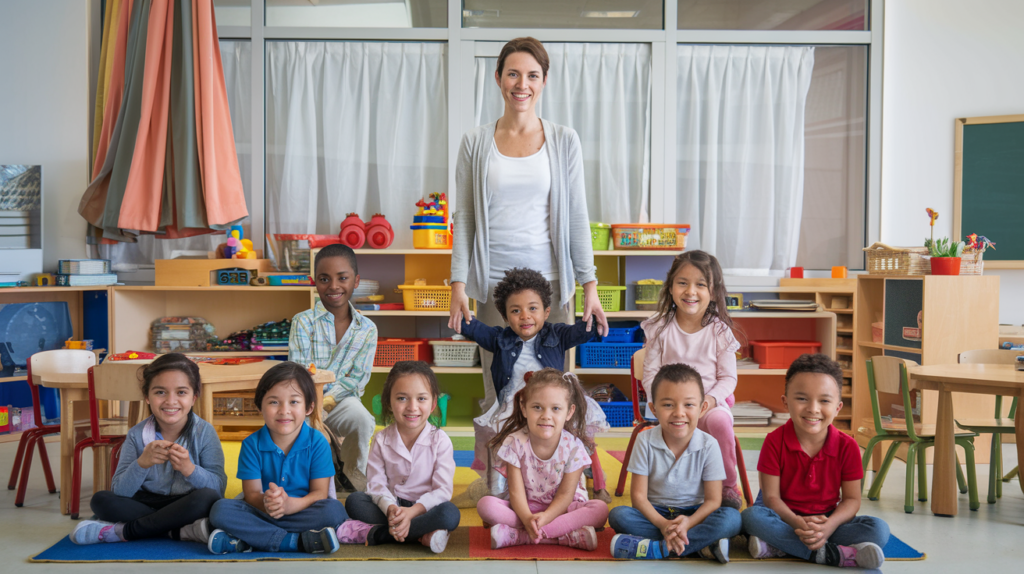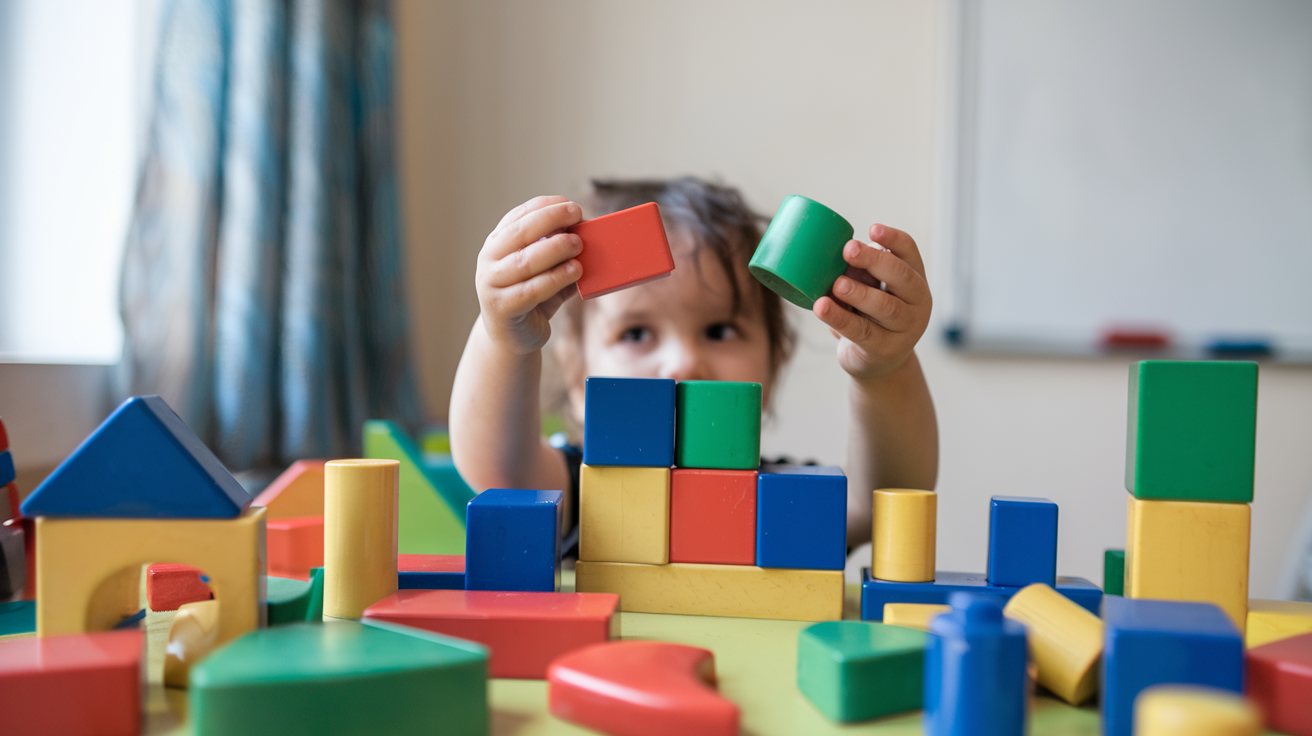As a mom who’s spent countless hours researching, observing, and sharing with other parents, I’ve come to realize how foundational early childhood education is for our little ones. We all want what’s best for our children, and in today’s world, where knowledge is right at our fingertips, it’s easier than ever to understand just how essential early education is. It’s not just about ABCs or 123s – it’s about shaping the foundation for who our kids will become.
Early Childhood Education: A Mother’s Insight
When my first child entered preschool, I’ll admit, I was skeptical. I wondered if it was too soon to introduce structured learning and if, maybe, just letting him play was enough. But what I’ve come to understand is that early childhood education is far from simply “structured.” It blends exploration, play, and discovery with a light touch of guidance, creating an environment where kids can blossom.
Here’s why early childhood education has become so valuable to me as a mother – and why I believe it’s key for all children.

1. Boosting Social Skills and Confidence
In those early years, children learn more than we may realize. Think about it – toddlers who play together learn how to share, wait their turn, and communicate. In a preschool or early learning environment, kids are gently nudged to interact with each other, build friendships, and learn from those around them. These interactions, as small as they may seem, help them develop social skills and a strong sense of self-confidence.
From my experience, my son started handling group play better, became more patient, and began to express his feelings clearly. These are tiny wins, but they’re building blocks of lifelong social skills.
2. Cognitive Development Through Play-Based Learning
Early childhood education nurtures cognitive development in ways I couldn’t have anticipated. Through age-appropriate activities, children learn to solve problems, ask questions, and explore cause and effect. Many preschools and learning centers focus on play-based learning, where kids build puzzles, play with blocks, and engage in storytelling.
As a mom, I’ve seen the magic of this approach. When my child figured out how to put together a puzzle or shared a story with his own little twist, it made me realize how these simple activities encourage critical thinking and a love for learning. Early cognitive development sets the stage for curiosity, one of the best traits a child can carry forward.
3. Developing Emotional Intelligence
One thing I didn’t fully expect was the role early education would play in emotional growth. Kids are like little sponges, absorbing not only facts and skills but also emotional cues. By being around other children and caring teachers, they start learning empathy, patience, and emotional regulation.
I remember a day when my daughter comforted a friend who was upset. Moments like these remind me that early childhood education is more than academics – it’s helping her understand her own emotions and recognize them in others.
4. Building Routine and Independence
Preschool introduces routines, which kids love (even if they won’t admit it!). Morning circle time, snack time, learning time, and playtime each have their purpose and rhythm. Children start understanding time and build a sense of predictability, which can be especially comforting at such a young age.
My son learned to put away his toys, pack his bag, and wash his hands before eating – all these small things that may seem trivial but are actually building his independence. By fostering independence, early education helps children feel capable and prepares them to take on more responsibilities as they grow.
5. Laying the Foundation for Academic Success
Some parents worry that early education might be too “academic.” But the truth is, early childhood education isn’t about pushing kids; it’s about exposing them to a world of possibilities. By introducing children to books, songs, stories, and even basic math concepts in a fun way, they get to explore the world around them.
For my kids, this translated into a genuine excitement about learning. My daughter was thrilled to recognize letters and numbers, and my son loved telling me all about the “cool” shapes he saw. Early exposure helps them feel comfortable with these concepts when they eventually enter school.
6. Instilling a Love for Lifelong Learning
Finally, what I treasure most about early education is the love for learning it inspires. When children experience learning in a safe, fun, and engaging environment, they develop positive feelings toward education. Early childhood education encourages curiosity and teaches kids that learning isn’t a chore – it’s an adventure.
Watching my kids come home eager to share what they’ve learned makes me feel proud. It reassures me that these early lessons are helping them see education as a positive part of their lives.
Final Thoughts: Early Education Matters
As a mother, I can’t emphasize enough how much early childhood education has meant for our family. It’s given my kids a strong start, not just academically but in so many aspects of life. While we may think our little ones are too young to grasp these big concepts, the truth is, every experience they have in those early years is helping to shape them into confident, curious, and capable individuals.
For any parent considering early childhood education, know that it’s a journey well worth taking. It’s about more than just schooling; it’s about nurturing the hearts, minds, and spirits of our children. And as parents, isn’t that all we want for our little ones?
Related Reading: Nurturing a Toddler’s Curiosity
If you’re curious about practical ways to encourage your toddler’s love for learning, you’ll find How to Foster a Love for Learning in Toddlers full of helpful, hands-on ideas. This article shares simple, everyday activities that make learning enjoyable and natural, from play-based exploration to celebrating small milestones. I found it particularly useful as a mom looking to inspire curiosity without overwhelming my little ones. Give it a read if you’re looking for creative, heartwarming ways to make learning part of your family’s daily routine!
Bonus Tip: Learning Together with Time Management
As parents, balancing time with our toddlers, work, and household responsibilities can be challenging, and it’s easy to feel stretched thin. While nurturing a love for learning in our kids, it’s also essential to manage our own time effectively. I recently came across The Ultimate Guide to Time Management: Techniques for Productivity, and it’s been a game-changer in helping me prioritize, plan, and carve out meaningful moments with my children. If you’re looking to stay organized and make the most of each day, I highly recommend giving it a read. You’ll find practical tips to boost productivity, which can free up time to engage with your little ones and nurture their learning journey even more!





